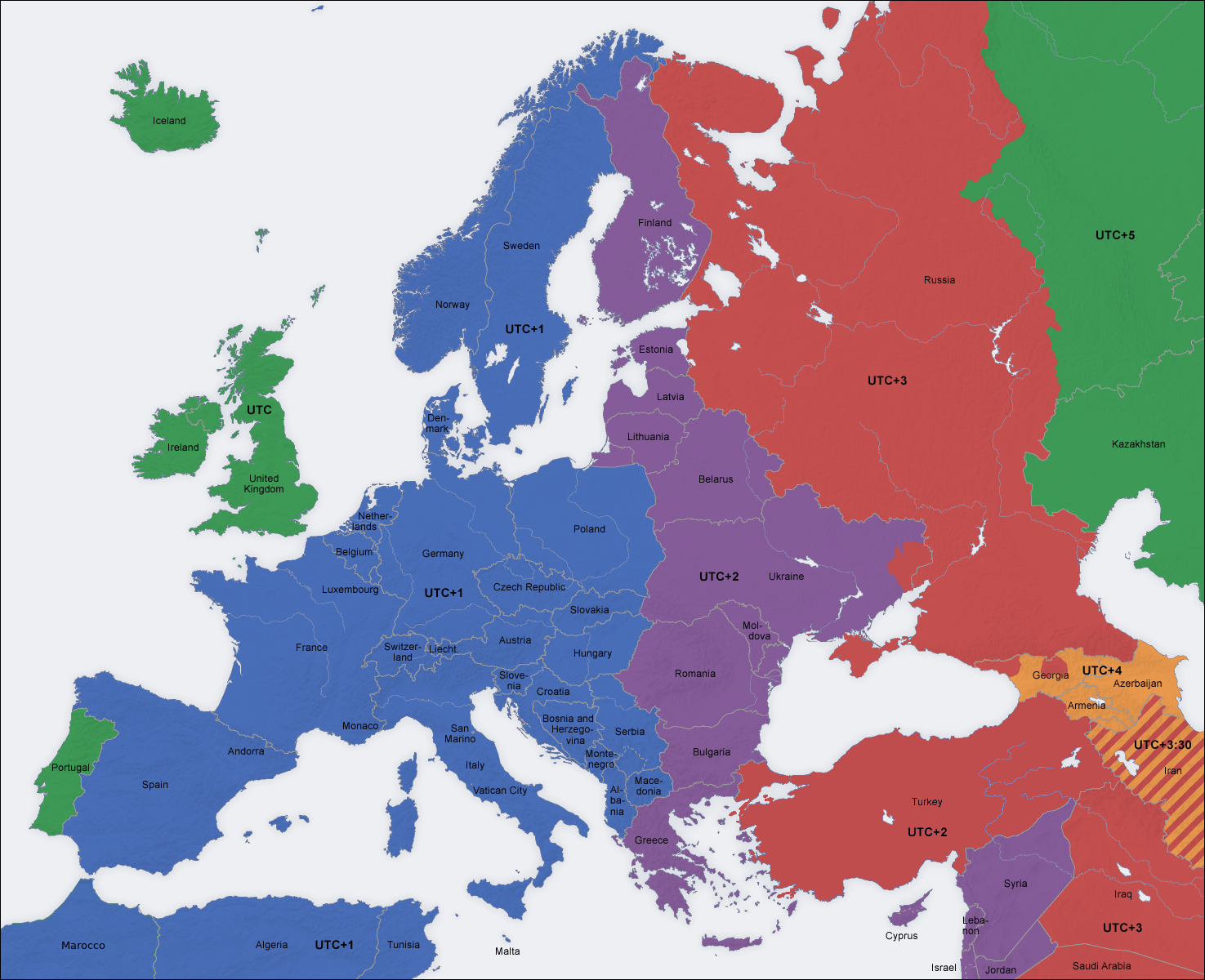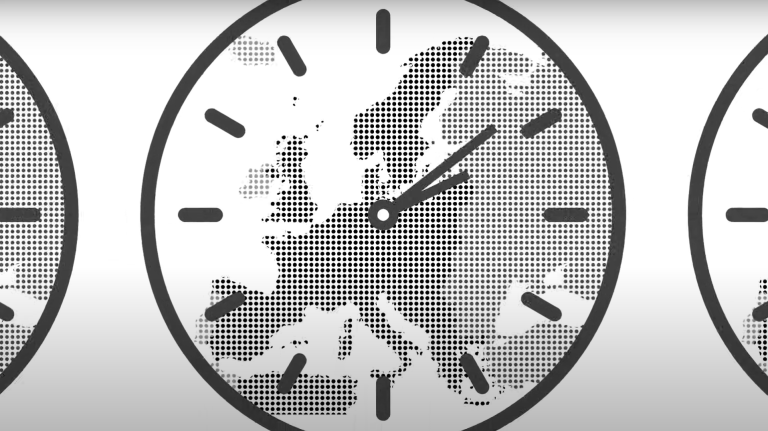Most European clocks have become out of sync with natural time since World War II, when countries such as Spain chose Central European Time (CET) to align with its ally Nazi Germany. It is illogical for the West in the Mediterranean region to adopt a more suitable timing for Poland. Many people support dividing Europe into four time zones based on natural time; Ensure that the sun is at its highest at noon, but it seems very difficult to change the status quo.

It doesn't make sense for Poland and Spain to share the same time zone. Map of European times from Wikimedia Commons.
Another big point of contention is daylight saving time policies. They were first introduced to save coal consumption during World War I, but they no longer serve their intended purpose anymore. Today, they are not very popular: iIn a 2018 survey, 84% of respondents wanted to eliminate the switch between daylight saving time and standard time. But most of us are still clinging to it, as it is The European Union has left it up to individual countries to decide whether to adhere to winter or summer time.
Time zones and daylight saving time are not only about when we set our clocks, but also about our health. Humans are mostly tuned to a circadian rhythm, an internal clock that more or less aligns with sunlight and periods of darkness. When this temporal mechanism is rearranged, our biological clock becomes out of sync with our social clocks—the schedule by which our societies operate.
It is a chronobiological mystery that spans the continent, is laden with history, and politically charged. Today's guests try to sort the pieces:
Professor Dietrich Henkel is a member of the Board of Directors of the German Society for Time Policy (DGfZP), and specializes in urban and regional economics. His research covers urban temporal structures, temporal politics and the impact of light pollution on cities. Professor Hinkle is known for his contributions to understanding how time and temporal dynamics influence urban environments and policy making.
Dr. Imre Marton Rimini is a Budapest-born, Vienna-raised expert with a diverse background ranging from mechanical engineering to opera singing. He currently works as a coach, psychotherapist and organizational consultant, and is the President of the Austrian Burnout Association. He is also CEO of Systemisches Institut Wien.
James Irons is a comedian and professional actor based in the UK and Vienna, who has played and appeared in multiple roles, including the Open House Theater in Vienna. He began his career with the theater podcast group in the UK, moving to Austria two years later. He was the assistant director of the play The invisible hand For the Vienna Theater Project.
We meet them at Alte Schmiede Kunstverein, Vienna
Creative team
Rika Kinga Papp, Editor-in-Chief
Murphy Akiel, Artistic Director
Zylvia Pinter, producer
Zofia Gabriella Babb, executive producer
Margareta Lechner, writer and editor
Salma Shaka, writer and editor
Priyanka Hutchenreiter, Project Assistant
administration
Hermann Riesner General Manager
Judit Ksikos is project manager
Ms. Chela Kardos, Office Administration
Octo crew
Senad Hergić is producer
Video recording by Leah Hochdlinger
Video recording by Marlena Stolzi
Clemens Schmidbauer video recording
Audio recording by Richard Prosek
Budapest video crew
Nora Roszkay, audio engineering
Gergely Aaron Babai, Photography
Laszlo Halasz, photography
Post production
Nora Roszkay, lead video editor
Dialogue Editor Katerina Kuzmenko
art
Animation by Victor Maria Lima
Cornelia Frischoff, theme music
Captions and subtitles
Julia Sobotta, Daniela Unifazo, Mars Zaslavsky, Marta Verdibar, Olena Yermakova, Farah Ayyash
Hosted by Alte Schmiede Kunstverein, Vienna
sources
Daylight Saving Time and Artificial Time Zones – A Battle Between Biological and Social Times by Till Roenberg and Eva C. Winnebeck, and Eva C. Winbeck, Frontiers in Physiology.
When will the European Union end seasonal clock changes? Only time will tell. By Alice Tiede, Euronews.
Do schools kill creativity? Sir Ken Robinson, TED
disclosure
This talk show is produced by Display Europe: a leading media platform based on public values.
This program is jointly funded by the European Union's Creative Europe Program and the European Cultural Foundation.
Importantly, the views and opinions expressed here are solely those of the authors and speakers and do not necessarily reflect the views of the European Union or the European Education and Culture Executive Agency (EACEA). Neither the European Union nor EACEA can be held responsible for it.


